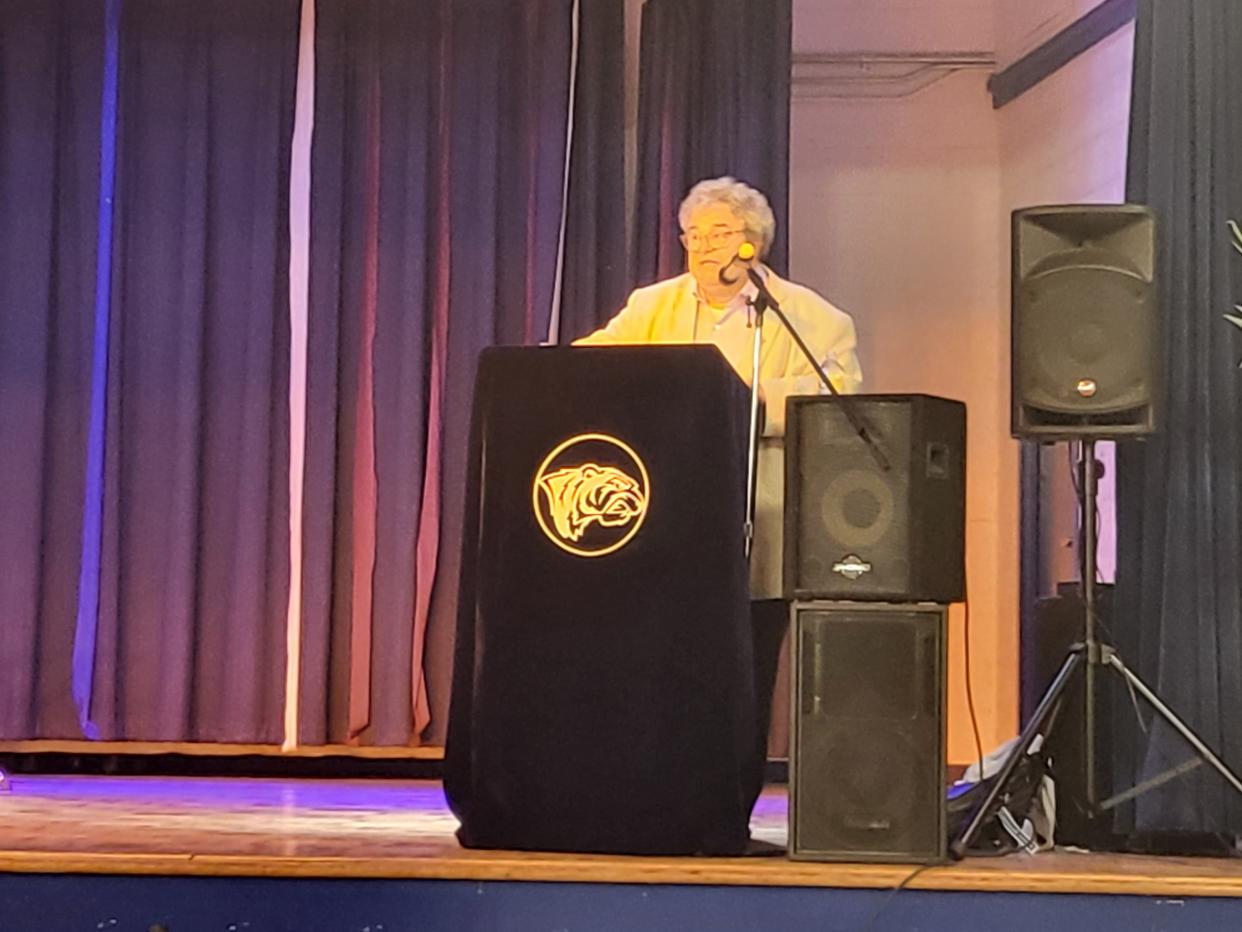Speakers warn of parallels between 1898 Wilmington Massacre and today

The Wilmington 1898 Observance Committee held a town hall event Saturday commemorating the 124th anniversary of the massacre and coup d’etat, where speakers warned of parallels to today’s hate groups and threats to democracy.
The event was sponsored by the Wilmington Journal Breakfast Club and was part of a week of events commemorating Nov. 10, 1898, when armed white men violently overthrew the Wilmington City Council, set the office of the city's Black-owned newspaper, The Daily Record, ablaze and attacked Black residents on the north side of town.
Tim Tyson, author of "Democracy Betrayed: The Wilmington Race Riot of 1898 and Its Legacy," detailed at the event how though the violence was most dramatic in Wilmington, it was widespread throughout the state and marked the end of democracy in North Carolina for Black Americans. Tyson is a senior research scholar at the Center for Documentary Studies at Duke University and also holds a faculty position in the Department of American Studies at the University of North Carolina.
More:Williston High School’s origins date to Civil War
Tyson said the attack on Black people in the city followed a contested election and a media campaign orchestrated by North Carolina’s Democratic Party that used speeches, cartoons, and the threat of violence to create support for white supremacy.
During the election, armed and violent groups like the Red Shirts patrolled polling stations, which speakers like Blueprint N.C. Executive Director Sonya Sebring likened to the Proud Boys today.
At the time, Wilmington was the largest city in the state, had a Black majority, and was a stronghold for Black political and economic power, Tyson said. Because of the massacre and its chilling effect on voting rights, Tyson argued the post-Civil War South was robbed of a multiracial democracy that was winning elections before the political violence.
“We could be looking at a very different kind of South right now,” he said.
Other speakers included Kojo Nantambu, pastor of Temple of Truth, Light and Life church in Wilmington, and Christopher Madden, principal at Williston Middle School, where the event was held.
The school first opened in its current location in 1915 and has had a long tradition as a social center for Wilmington's Black community. It was the first fully accredited Black high school in the state but was closed during integration so that white-majority schools could remain open. Williston students were instead moved to New Hanover or Hoggard high schools.
Descendents of survivors of the massacre were in attendance, including the family of Alex Manly, editor of The Daily Record, and Joshua Halsey, another of the many Black murder victims that day.
The Wilmington 1898 Observance Committee advocates for reparations for descendants of the victims of the massacre and for education about it in all schools throughout the state.
Reporter John Orona can be reached at 910-343-2327 or jorona@gannett.com.
This article originally appeared on Wilmington StarNews: Speakers warn of parallels between 1898 Wilmington Massacre and today

